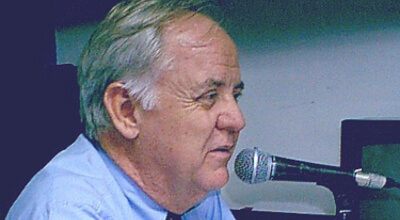Reaching Caracas Today
During the last two years Las Acacias has developed a strategic plan to deploy 1,500 trained leaders into 50 areas of Caracas to strengthen the believers and minister to the local communities. Through the church’s “Tent Stake” initiative based on Isaiah 54:2, Las Acacias is driving in “stakes” across the city to proclaim the gospel and bring healing to Caracas citizens who haven’t heard the gospel.
“We do this without establishing daughter churches,” Olson explains. “We want to grow the one church throughout the city, with a decentralized ministry.”
The leaders being deployed will seek to “shepherd, and to reach out to the hungry, the poor, the helpless and the lost through the transforming power of the Word and the Spirit of God,” Olson says.
A secondary goal of the initiative is to help Las Acacias identify Olson’s successor. Church elders want to identify 50 members from among the 1,500 neighborhood leaders with the gifts and calling for pastoral ministry. From them they will appoint staff ministers, each with a secular-profession background and formal theological training.
“If we have 12 associate pastors by 2012, the church will have a leadership team in place from which it will be able to discern its future senior leadership,” Olson says.
The year after, in 2013, Chavez is scheduled to turn over power to the next president of Venezuela. Who his successor will be and what kind of political agenda he or she will pursue is anybody’s guess. What is certain is that the pastor who steps into Olson’s shoes will face an enormous challenge.
“Even though we are a Catholic nation by birth, basically we are a very secular, materialistic society,” Olson says.
“Here, if you are a university graduate, you may have been trained under a Positivist philosophy¥the background of Marxism in Latin America. For many decades of the 20th century, this was the basis for much of the political development.
“Changes occurred as Roman Catholic and Protestant Christians and other non-Marxist groups started to develop their own economic, social and political theories.”
Chavez is a child of this particular history. He once considered becoming a priest and often reads lengthy passages from the Bible in his televised speeches. Yet he also credits the “ideology” of Jesus as being part of his inspiration for Bolivarian revolution.
“The humanity of Jesus, bereft of the divine and of His saving power, is understood as the Christian model for the transformation of society,” Olson explains.
“There is no idea of a relationship with Jesus Christ; rather a new society and a new man are to be brought about by social and economic measures. This is being used to justify his political agenda, and it convinces some evangelicals.”
The answer to this confusing mix of politics and religion lies with Venezuela’s Bible-believing Christians, Olson says.
“The greatest challenge facing the evangelical church in Venezuela at the moment is to maintain its integrity. It must remain true to its own ethical and spiritual boundaries, based on the authority of Scripture, while being true to the historical Jesus as the incarnate Word,” he says.
So, has Hugo Chavez really been good for the evangelical church in Venezuela? Only time, and eternity, will tell.
David Miller and his wife, Barbara, have served as missionaries to native Andean peoples in Bolivia since 1981. As a journalist, he has written extensively about Christians who face persecution because of their faith.














































